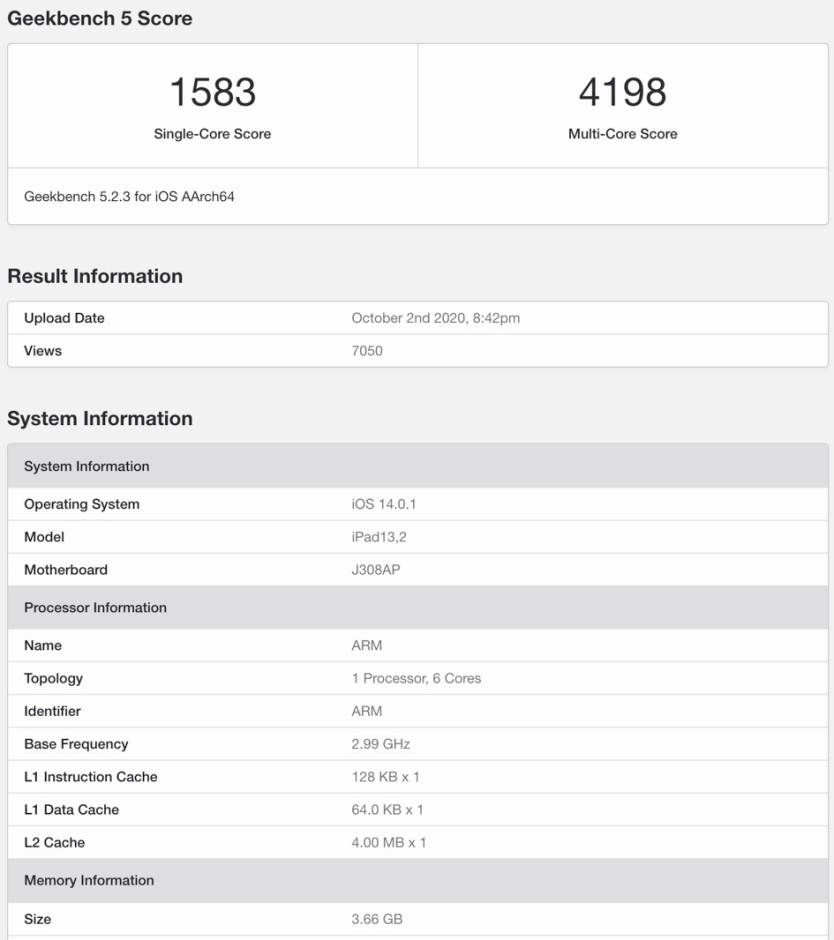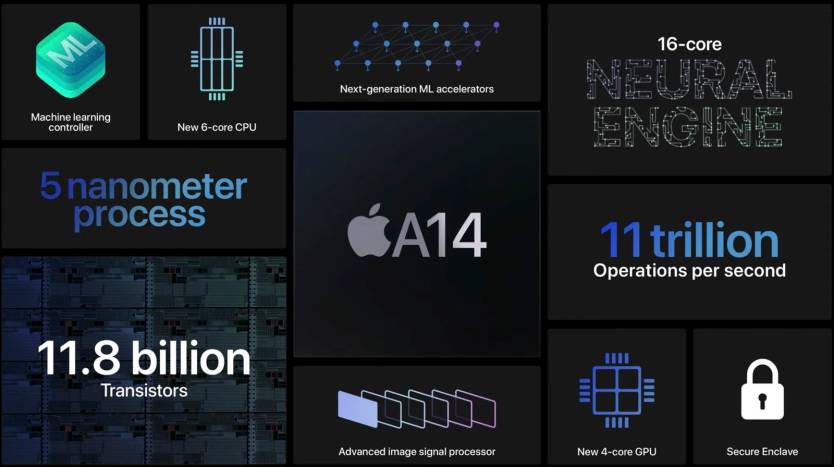Benchmark Leak Tells Us How Fast The iPhone 12 Will Be
- Apple unveiled the iPhone 12's A14 Bionic chip in mid-September, revealing that the 5nm processor will also power the new iPad Air. Apple is expected to launch the iPhone 12 series in the coming weeks.
- An early benchmark test indicates the A14 Bionic will be noticeably faster than the A13 processor of the iPhone 11.
- The test indicates the A14 Bionic will be no match for the processors Android vendors used for flagships and mid-range phones this year.
Apple held its usual mid-September press conference, but there was nothing usual about it. First of all, it was a virtual event streamed online because of the raging coronavirus pandemic. Most importantly, this mid-September event wasn't about the iPhone. Apple unveiled new iPads, new Watches, and new subscription services at the show. Also surprising was Apple's announcement of the iPhone 12 processor at the show. Apple may not have mentioned the iPhone 12 by name, but the A14 Bionic certainly got a proper introduction. This is the word's first 5nm chip that will power a smartphone, and it so happens that it will power Apple's iPad Air tablet that was announced at the show. That iPad Air model hasn't shipped to buyers, however. Some speculated that Apple would launch the new iPad Air once the iPhone 12 is official, saying that Apple may be keeping the A14 Bionic under wraps until then. But a Geekbench Browser benchmark was found online a few days ago, revealing the kind of performance the A14 Bionic is capable of, and teasing that the iPhone 12's release is imminent.
It was Samsung insider Ice Universe who posted the A14's Geekbench 5 scores online over the weekend:
A14's first Geekbench 5 results appeared, single-core 1583, multi-core 4198, still the king. pic.twitter.com/HXMgEfjSuW
— Ice Universe (@UniverseIce) October 3, 2020
The results say the tested device is iPad13,2, running iOS 14.0.1 on a six-core ARM processor clocked at 2.99GHz and 4GB of RAM. The device scored 1583 in single-core tests and 4198 in multi-core tests.

An early A14 Bionic benchmark reveals the expected performance of the iPhone 12 and iPad Air processor.
These results make the A14 Bionic noticeably faster than its predecessors, including the A13 Bionic in the iPhone 11 series and the A12 Bionic from the iPhone XS. When Apple unveiled the A14, it compared its performance to the A12 version powering the previous iPad Air generation. This allowed some experts to speculate on what the speed gains are relative to the A13 Bionic.

Geekbench 5 scores: iPhone XS vs. iPhone 11.
Those scores outperform everything else in the industry by a significant margin. Here's how the Galaxy S20 5G's Snapdragon 865 processor fairs against the iPhone 11 in Geekbench 5 tests.

Geekbench 5 scores: Galaxy S20 vs. iPhone 11.
The Pixel 4 does even worse than the iPhone 11, with its Snapdragon 855 processor. It won't be a match for the iPhone 12.
Geekbench 5 scores: Pixel 4 vs. iPhone 11.
The Pixel 5 rocks a chip that might slightly outperform the Pixel 4 after optimizations. But the mid-range Snapdragon 765G-powered phones, like the Pixel 5, OnePlus Nord, and Motorola Edge, will be significantly slower than the iPhone 12 phones.

Geekbench 5 scores: Motorola Edge vs. iPhone 11.
That said, it's not just the processor speed that matters in real-life tests. Android handset makers were able to compensate for the lack of power by increasing the amount of RAM on their flagship devices. The iPhone might load apps faster than Android handsets, but the extra RAM on Android devices has its advantages, allowing the phones to keep in memory more apps than the iPhone.
Android vendors will launch their first phones powered by 5nm processors only next year, once the Snapdragon 875 rolls out.

Apple's A14 Bionic chip features unveiled at Time Flies press event.
Apple is expected to announce the next virtual press conference soon, where the iPhone 12 series will be unveiled. Several rumors have said that Apple will hold its yearly iPhone event on October 13th this year, at which point the company will likely reintroduce the A14 Bionic and all of its upgrades. As seen above, Apple already explained several of the A14 Bionic innovations that customers can expect.
